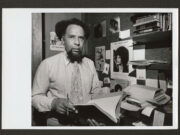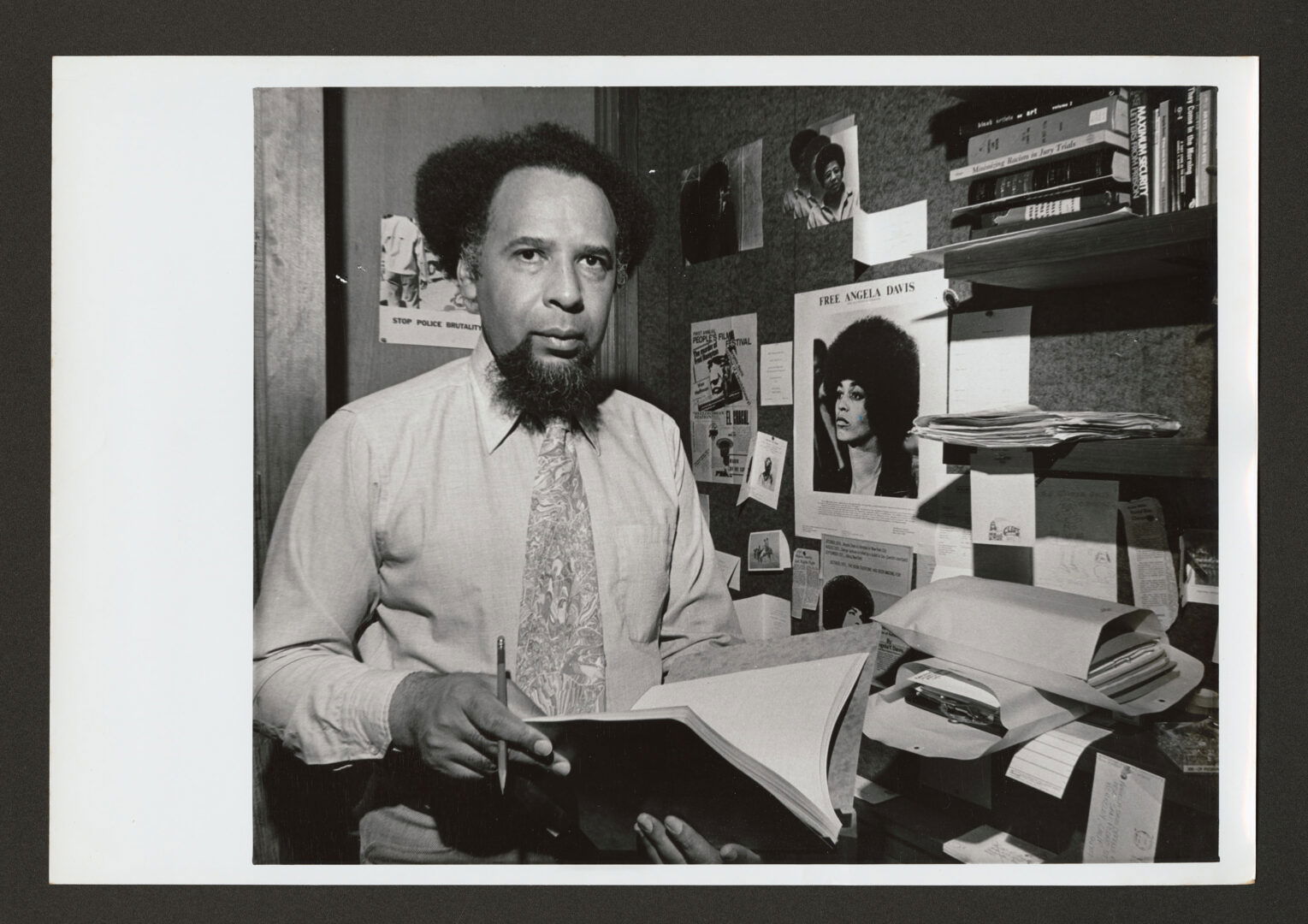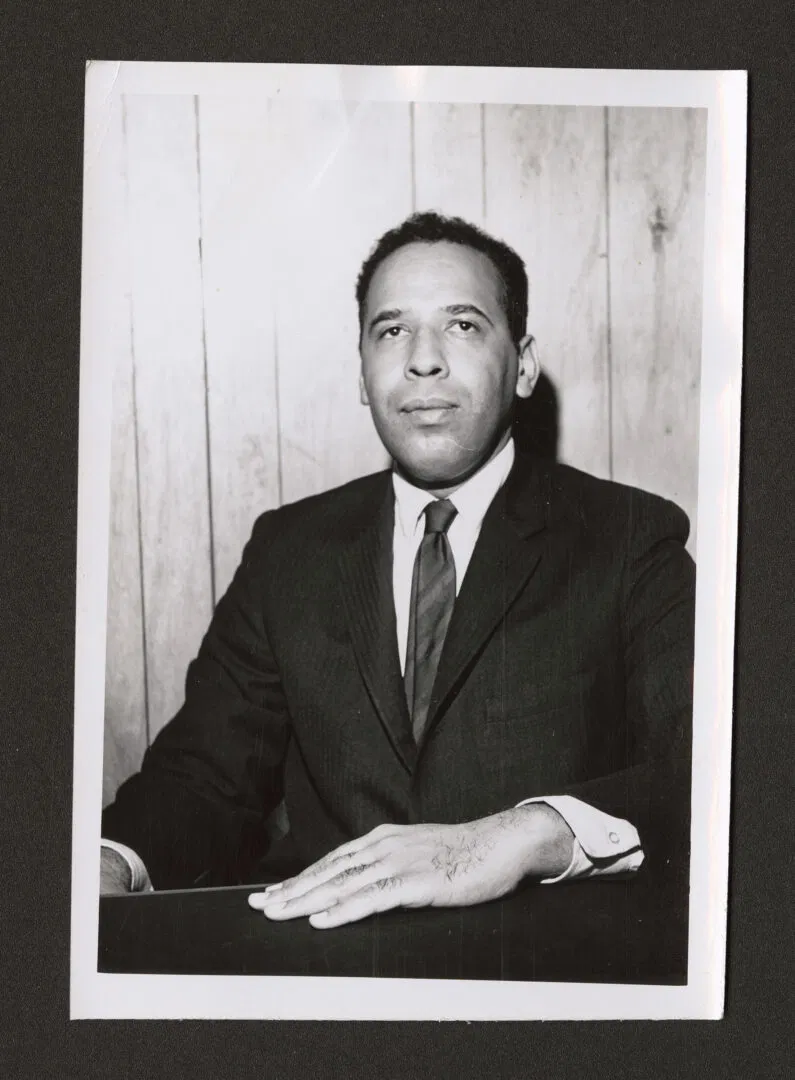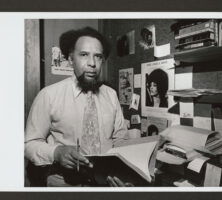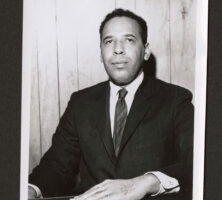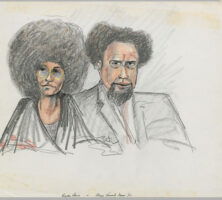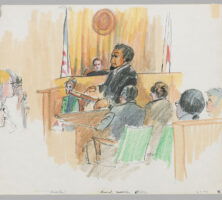Civil rights attorney and Atlanta native Howard Moore Jr. handled a number of important cases in 1960s Atlanta that set precedent regarding freedom of speech as well as other significant rights issues. A protégé of Donald Hollowell, Moore attended law school in Boston, Massachusetts, but felt an obligation to use his legal training to assist activists in the South. He relocated to California in 1971 to serve as lead counsel on the high-profile Angela Davis trial and spent the remainder of his career in the Bay Area.
Early Life
Howard Moore Jr. was born in Atlanta on February 28, 1932, to Bessie Sims and Howard Moore Sr. He was raised in the vicinity of Auburn Avenue, the center of the city’s Black business district, and worked as a paper delivery boy for the Atlanta Journal in his youth. He became interested in law in summer 1951 when he saw civil rights attorney and future U.S. Supreme Court justice Thurgood Marshall speak at the annual convention of the National Association for the Advancement of Colored People, which was held in Atlanta that year. After graduating from Atlanta’s Morehouse College and serving an uneventful stint in the U.S. Army, Moore attended law school at Boston University, as no law school in Georgia would admit an African American applicant.
Atlanta and Civil Rights Work
Moore returned to Atlanta in 1962 to work for Donald Hollowell and then helped to found the law firm Moore, Alexander, and Rindskopf, where he was a full partner. In July 1962, he married Jane Bond, daughter of Horace Mann Bond and Julia Washington Bond, and sister of Student Nonviolent Coordinating Committee (SNCC) communications director Julian Bond. Moore worked closely with SNCC in the years that followed, often traveling to the group’s organizing projects in Mississippi and southwest Georgia. Moore advised the group on legal strategies related to school desegregation and worked to free activists arrested and jailed during voter registration drives. He corresponded with Michael Schwerner regarding school desegregation in Meridian, Mississippi, shortly before members of the Ku Klux Klan murdered Schwerner. In late 1964, Moore represented activists in the Heart of Atlanta Motel v. United States (1964), which reached the U.S. Supreme Court and reaffirmed the legality of the 1964 Civil Rights Act’s criminalization of discrimination in privately owned spaces.
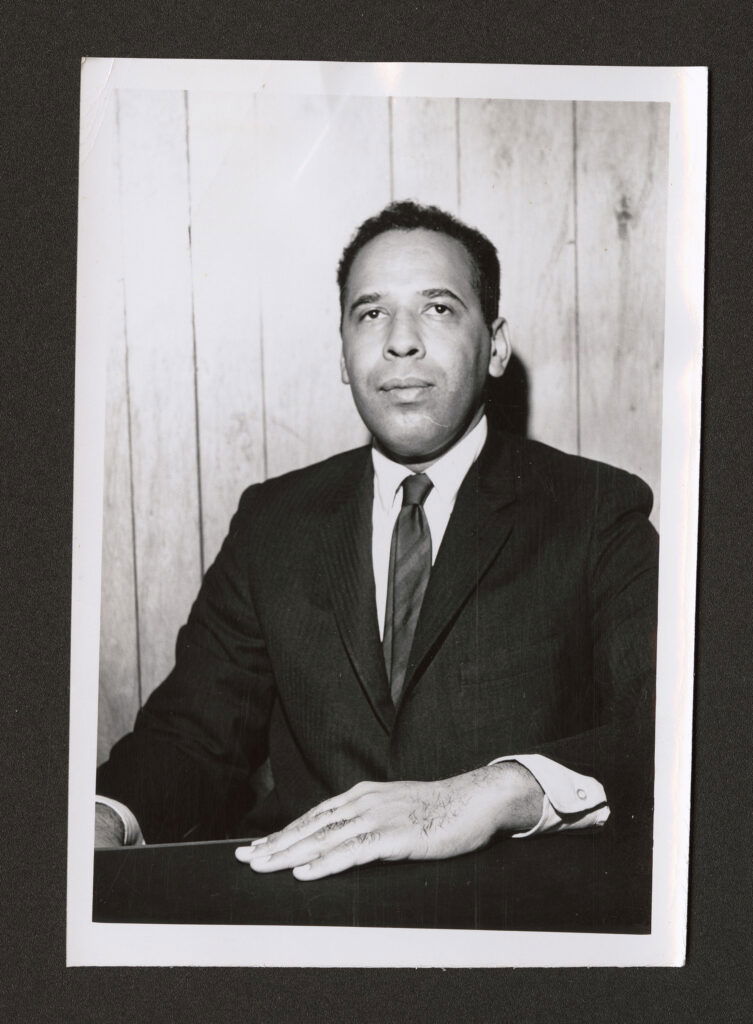
Moore soon earned a reputation as the go-to lawyer for activists punished for political speech. In 1965, his brother-in-law Julian Bond was elected to the Georgia House of Representatives, but just before he was due to assume office, SNCC issued a statement condemning the Vietnam War and encouraging protests against it. When a reporter called Bond at his home to ask him about his response, Bond, as the communications director, was compelled to support the statement. In response, several members of the Georgia General Assembly demanded that he be prevented from taking his seat. Moore represented Bond in the matter, and the resulting legal case, Bond v. Floyd (1966), also ended up in front of the U.S. Supreme Court, which ruled that the state legislature had violated Bond’s First Amendment rights. Around the same time, Moore successfully defended prominent SNCC leader Stokely Carmichael against charges of insurrection resulting from a riot in Atlanta’s Summerhill neighborhood. In both cases, Moore viewed himself as his clients’ defender against the excesses of state power.
While based in Atlanta, Moore also defended several objectors to the Vietnam War draft, including Charles Cabbage, a Black Power leader in Memphis, Tennessee, and John Lemons, an Atlanta dishwasher who converted to Islam and saw the war as a colonial injustice. Moore himself traveled with SNCC organizer James Forman to Zambia for a 1967 United Nations seminar on South African discrimination and was disturbed by the legacies of colonialism he witnessed in African airports and other public spaces.
California and the Angela Davis Trial
In December 1970, Moore’s career took another significant turn when Haywood Burns, national director of the National Conference of Black Lawyers, contacted him on behalf of the recently incarcerated Angela Davis. A philosophy instructor at the University of California, Los Angeles, Davis had earned a reputation as an outspoken Communist and Black Power activist. On August 7, 1970, when an associate of Davis used guns she owned in a Marin County courtroom takeover that resulted in the deaths of three inmates and a hostage, the state of California charged her with conspiracy, kidnapping, and murder, even though she denied advance knowledge of the plan. The FBI apprehended her in New York City in October, and law enforcement authorities extradited her to California to face trial. Davis argued that she faced the death penalty because of her political speech, not any actual criminal activity, and she wanted Moore on her legal team because of his reputation for working with political dissidents.
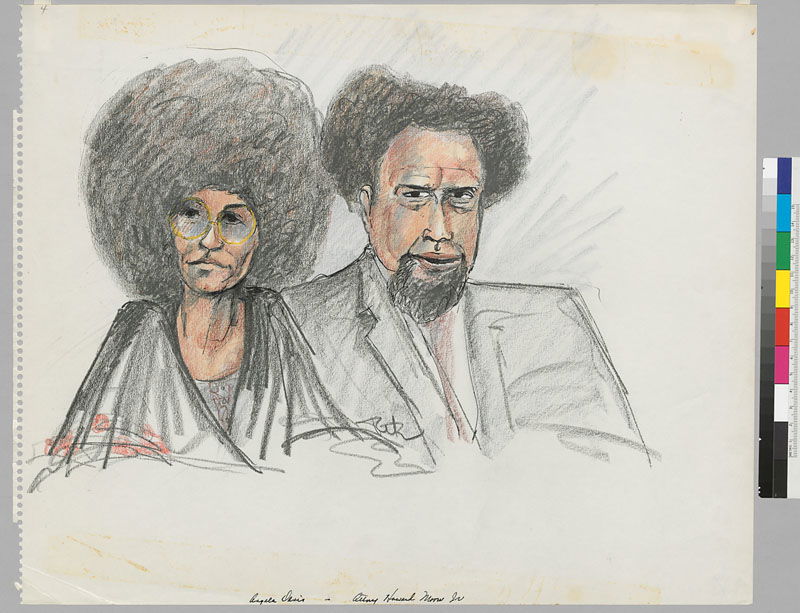
Moore agreed to serve as Davis’s counsel and relocated to California in April 1971, taking the lead role on a legal team that also included Margaret Burnham, Doris Brin Walker, and Leo Branton Jr. He assisted Davis with the publication of political writings while serving on her defense team, and in June 1972, the jury on the case found Davis not guilty.
Moore had originally planned to return to Atlanta once the Davis case was complete. However, while working on the case, he became involved in the defense of other high-profile California prisoners, including John Clutchette and Fleeta Drumgo, two of the three Soledad Brothers. Moore decided to stay in California permanently and spent the following decades in the Bay Area working on cases related to employment discrimination and other civil rights issues. Jane Bond Moore received a law degree from the University of California, Berkeley, in 1975 and, after working with the Federal Trade Commission and the Oakland Unified School District, joined Howard’s law practice in 2001. They have three children: Grace, Constance, and Kojo.


